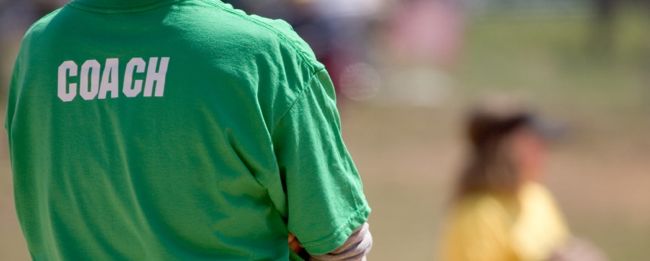
One thing I enjoy as a strength coach is being able to train young athletes. Over the past five and a half years, I’ve been blessed with the opportunity to train many young athletes at all levels. What I came to realize is there is much more that goes into training young athletes than just getting them bigger, faster, and stronger. In examining my current and past young athletes, four things have made me successful in training this demographic. I consider these points to be the foundation of my training philosophy and have named them the “four Cs of coaching.”
- Creativity/coaching: When I list creativity, I don’t mean thinking of the craziest exercises you can come up with for your athletes. Remember, your number one priority is to address the wants and needs of the athlete, not demonstrate how many exercises you can do with a Bosu ball or how you have the ability to make them puke out their entire intestines (although I’ve implemented the ladder in certain cases to prove a point about nutrition). Apply your coaching knowledge and develop a program that is effective and efficient. Furthermore, find ways to keep the interest of your athlete and break up the monotony that can occur by shaking things up on occasion. For example, you might want to deviate from your standard warm up and engage in some type of game instead (i.e. rebounder game or football). Executing this small change in your workout keeps the athlete as well you the trainer engaged in the session and the task/goal at hand.
- Commitment: All the athletes I’ve had success with, no matter what level they were at, had to gain trust in me first and foremost. An athlete
 wants to know he is in good hands. Once you’ve earn an athlete’s trust, it will allow him to be open and honest about his goals and how he’s handling your expectations. This all starts with commitment. Whether you’re training an athlete for a few months or a few weeks, the commitment needs to be the same. In each session, you need to show your athlete how committed you are in getting him better. When an athlete sees your commitment to him and his goals, he will be more inclined to commit himself to the task at hand.
wants to know he is in good hands. Once you’ve earn an athlete’s trust, it will allow him to be open and honest about his goals and how he’s handling your expectations. This all starts with commitment. Whether you’re training an athlete for a few months or a few weeks, the commitment needs to be the same. In each session, you need to show your athlete how committed you are in getting him better. When an athlete sees your commitment to him and his goals, he will be more inclined to commit himself to the task at hand. - Communication: Communication is number three on my list, but perhaps it should be number one because of its importance, especially if you’re dealing with kids and their parents. There is a reason God gave us two ears and only one mouth. From my own experience, I often caught myself doing too much talking and explaining to athletes rather than listening to them, especially during the initial encounter/meeting. Many times if you take the time to listen to your clients, they will tell you all you need to know about them. Early in my professional career, I tried to “wow” the parents by demonstrating how much knowledge I had to offer. What I completely neglected was how I could best meet the wants and needs of the athlete and her parents. I realized they are the ones investing their money as well as time so not listening to them closely displayed very poor coaching and customer service. Listening demonstrates that you genuinely care for them and what they want from their training sessions.
- Consistency: Aristotle wrote, “We are what we repeatedly do. Therefore, excellence is not an act but a habit.” This is a great quote that I live by and convey to my clientele. I constantly challenge my young athletes to have a focus and consistency with all they do on and off the field. Humans are creatures of habit so it is important that young athletes develop good ones to maximize their abilities. Along with getting my athletes to be consistent, I strive to be the same in all aspects of training from the energy I bring to each session to the follow-up emails I send to parents. Just as I have expectations for my athletes, athletes and their parents have expectations for me as well. Therefore, it’s imperative for me from the initial meeting with parent and child to be consistent with all I do.
Although I discussed the four Cs of coaching in regards to young athletes, I apply these points to all my clientele. I truly feel that if you focus just on these aspects of training, you will improve your relationships with your clients, which will ultimately lead to you becoming a better trainer.








